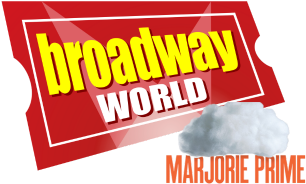Museum of the Moving Image to Present Ways to Freedom: Polish Film and the Rise of Democracy, 11/13-23
By: Tyler Peterson Oct. 30, 2014
Museum of the Moving Image and the Polish Cultural Institute New York will present Ways to Freedom: Polish Film and the Rise of Democracy, a thirteen-film series commemorating the 25th anniversary of the first free parliamentary elections in Poland. The series, running November 13 through 23, 2014, includes seven features and six documentary shorts that date from 1977 through 1990, a tumultuous political period in which the nation experienced the loosening of Stalin-era control, the imposition of martial law, and the birth and growth of the Solidarity movement. Four of the screenings will be introduced by noted film scholars, and the opening night of the series will be followed by a reception.
Ways to Freedom opens Thursday, November 13, at 7:00 p.m. with two films by Krzysztof Kieslowski, Blind Chance (1981) and From the Point of View of the Night Watchman ( 1977), a rarely shown documentary-style short, with an introduction by Annette Insdorf, film scholar (Columbia University) and author of Double Lives, Second Chances: The Cinema of Krzysztof Kieslowski. Tickets for this program are $15 (discounted for Museum members at the Film Lover level and above) and available in advance online at movingimage.us. Other highlights include Interrogation (1982, dir. Ryszard Bugajski, introduced by Sheila Skaff, NYU scholar, on November 14), a film set in 1950s Poland during the Stalinist era about the imprisonment and torture of a Polish actress who refused to denounce a friend. Famously censored by authorities during the period of martial law, Interrogation only opened theatrically in 1989 and was shown at the 1990 Cannes Film Festival where actress Krystyna Janda won the Best Actress award and the film was nominated for the Palme d'Or. Agnieszka Holland also appears in the film as an actress. Another rarely seen film in the series is The Mother of Kings (1982, dir. Janusz Zaorski, introduced by Michal Oleszczyk, film critic and director of Gdynia Film Festival, on November 16), follows a widow and mother of four from the crisis of the 1930s, World War II, and the Stalinist era. This film, too, was censored at its completion and was only released in Poland in 1987 and debuted internationally at the Berlinale in 1988 where it won the Silver Bear for outstanding single achievement. Another featured film, Escape from the Liberty Cinema (1990, dir. Wojciech Marczewski, introduced by Andrzej Krakowski, filmmaker and CUNY instructor, on November 15), combines fantasy with political satire in a tale about actors who step out of the screen to protest censorship. The series title is a reference to Marczewski's film.Videos
